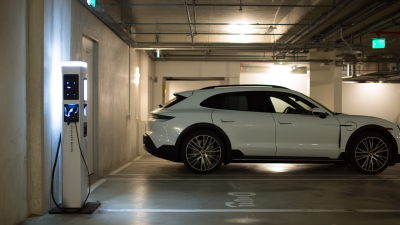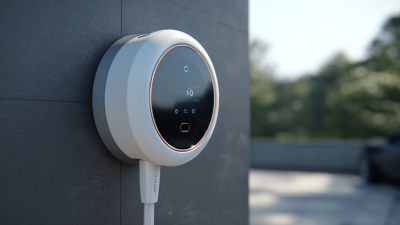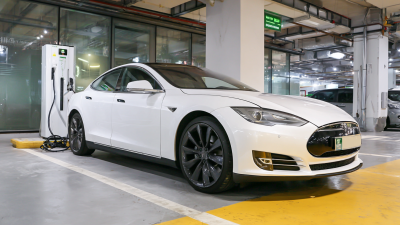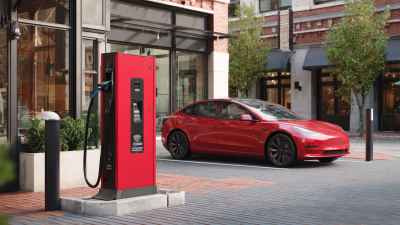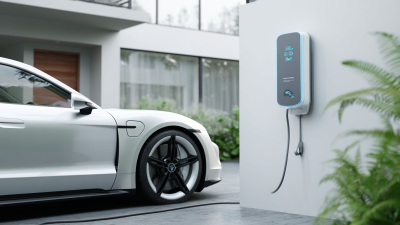The rapid evolution of electric vehicle (EV) technology has brought forth a significant enhancement in charging capabilities, particularly through the adoption of Car Fast Chargers. According to a report by the International Energy Agency (IEA), the global stock of publicly available fast chargers reached over 500,000 units in 2022, reflecting a robust annual growth rate of 38%. This surge in fast charging infrastructure is anticipated to accelerate the transition to electric mobility, as it addresses one of the key barriers to EV adoption: charging time. A study by McKinsey highlights that consumers prioritize charging speed alongside cost and range, making Car Fast Chargers an essential component in the quest for widespread EV acceptance. With advancements in rapid charging technology enabling vehicles to replenish significant battery capacity in a matter of minutes, the impact on consumer convenience and the overall EV ecosystem is poised to be transformative, paving the way for a greener future.
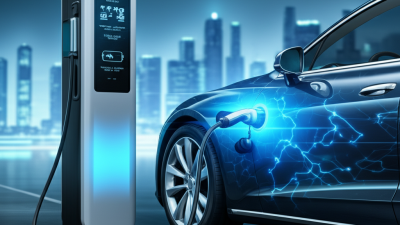
The rapid growth in the electric vehicle (EV) market is driving an increased demand for fast charging infrastructure. As outlined in recent market reports, the global EV smart charging station market is projected to witness substantial expansion, with an estimated market size of approximately $25.59 billion by 2025. This growth is fueled by the adoption of electric vehicles and the urgent need for robust charging solutions. The expansion will be instrumental in supporting the evolving needs of EV users and fostering broader acceptance of electric mobility.
Tips: To maximize the performance of your charging infrastructure, consider investing in liquid-cooled electric vehicle charging cables, projected to grow at a compound annual growth rate of 16.5% from 2025 to 2034, resulting in a market size of $2.03 billion by 2024. Also, integrating smart charging technologies can significantly enhance user experience while optimizing charging times and energy consumption.
Furthermore, the electric vehicle charging station market is expected to reach staggering heights, with revenues anticipated to hit $163.81 billion by 2035. This growth is driven by both environmental and economic factors, highlighting the pressing need for a comprehensive network of fast charging options. As EV adoption accelerates, it is crucial for stakeholders to focus on creating resilient and accessible charging ecosystems to meet the dynamic demands of electric drivers.
The rapidly evolving landscape of electric vehicle (EV) charging technology is witnessing unprecedented advancements, particularly in the realm of rapid charging systems. The global market for fixed EV charging guns is projected to grow from $423 million in 2023 to an astounding $3.142 billion by 2030, indicating a compound annual growth rate (CAGR) of 33.1%. This growth underscores the vital role that innovative charging solutions play in enhancing the convenience and accessibility of electric vehicles for consumers.
In conjunction with this trend, the on-board charger market for electric vehicles is expected to expand significantly, from $6.93 billion in 2025 to $22.89 billion by 2032, achieving a CAGR of 18.6%. Furthermore, the introduction of cutting-edge rapid charging batteries, capable of delivering up to 520 kilometers of range with just five minutes of charge, showcases the remarkable strides being made in battery technology. The anticipated growth in charging infrastructure, reflected in the projected increase of the global charging stack market from $20.32 billion to $41.24 billion by 2033, emphasizes the imperative to embrace these advancements to ensure a sustainable and efficient future for electric transportation.
| Charging Technology | Maximum Power Output (kW) | Charging Time (0-80%) | Connector Type | Applications |
|---|---|---|---|---|
| DC Fast Charging | 50-350 | 30-60 minutes | CHAdeMO, CCS | Highway stations, Urban locations |
| Level 2 AC Charging | 3.7-22 | 4-8 hours | Type 1, Type 2 | Home, Workplace |
| Wireless Charging | Up to 11 | 8-12 hours | N/A | Parking lots, Home use |
| Ultra-Fast Charging | 350+ | 15-30 minutes | CCS | Highway, Commercial |
The integration of fast charging technology is significantly influencing electric vehicle (EV) adoption rates and reshaping consumer behavior. According to a study by the International Energy Agency, the global electric car stock reached approximately 10 million units in 2020, a staggering 43% increase from the previous year, largely fueled by advancements in charging infrastructure. Fast chargers, capable of delivering up to 350 kW, can charge an EV up to 80% in just 30 minutes, considerably reducing range anxiety among potential buyers and making electric cars more appealing for long-distance travel.
Moreover, a report from McKinsey & Company highlights that consumers are increasingly prioritizing charging convenience. Approximately 60% of potential EV buyers indicate that the availability of fast charging stations near their homes and along major routes would significantly impact their decision to purchase an electric vehicle. This shift in consumer behavior demonstrates the critical role of rapid charging technology in overcoming barriers associated with EV ownership and highlights how enhancing infrastructure can accelerate the transition to sustainable transportation solutions. As the market continues to evolve, the importance of fast chargers will undoubtedly play a pivotal role in shaping the future of electric mobility.
As the electric vehicle (EV) market continues to expand, understanding the differences between fast charging and traditional charging solutions has become crucial for consumers and manufacturers alike. According to the International Energy Agency (IEA), the number of public charging points for EVs grew to over 1.3 million globally by the end of 2021. Fast chargers, capable of delivering 100 kW or more, can significantly reduce charging time, offering drivers up to 80% charge in just 30 minutes. In contrast, traditional Level 2 chargers, typically providing around 7 to 22 kW, often require several hours to complete a charge, making them less suitable for long trips.
The advancements in rapid charging technology have proven to be a game-changer in improving the EV ownership experience. A study by McKinsey & Company highlights that the integration of ultra-fast charging stations could increase the usability of electric vehicles, potentially leading to a 50% increase in overall adoption rates by 2030. Furthermore, improved battery chemistry and thermal management systems are enabling manufacturers to produce vehicles that can handle higher charging rates without compromising battery lifespan. This evolution is essential as it addresses one of the most significant barriers to EV adoption—charging convenience and time efficiency.
The future of electric vehicle (EV) charging networks is rapidly evolving, driven by advances in rapid charging technology. According to a report by the International Energy Agency, the number of public charging points worldwide surpassed 1.3 million in 2021, with a significant increase in fast chargers that can recharge an EV's battery to 80% in under 30 minutes. This shift not only enhances the convenience of EV ownership but is also crucial for meeting the growing demand for electric vehicles, projected to reach 145 million globally by 2030, as stated by the Global EV Outlook.
Moreover, trends indicate significant investment in charging infrastructure. Research from BloombergNEF indicates that investments in public charging networks could surpass $500 billion by 2030, aligning with governmental pushes for cleaner energy and reduced emissions. These fast charging solutions are expected to enhance the consumer experience, making it simpler to integrate electric vehicles into daily life. As the technology matures, charging networks will likely expand beyond urban centers, facilitating long-distance travel and addressing range anxiety among potential EV buyers.

